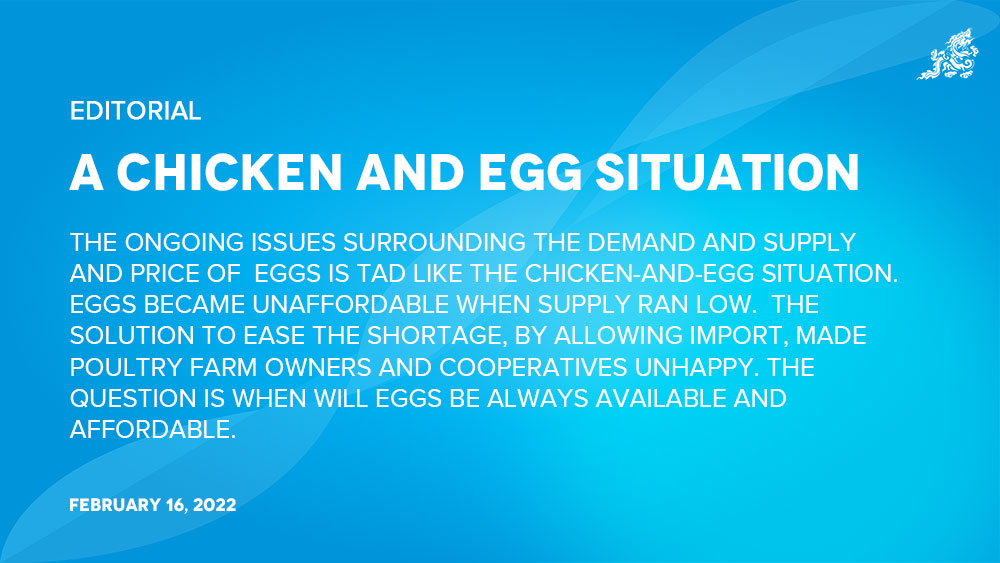The ongoing issues surrounding the demand and supply and price of eggs is tad like the chicken-and-egg situation.
Eggs became unaffordable when supply ran low. The solution to ease the shortage, by allowing import, made poultry farm owners and cooperatives unhappy. The question is when will eggs be always available and affordable.
Egg is a good source of protein. It is also called the poor man’s protein. Imported eggs are a lot cheaper, Nu 10 an egg compared with the Nu 16 per egg at the peak of shortage caused by the feed related problems with the poultry farms.
Price of eggs, like any other food item, is determined by the simple economics of demand and supply. However, going by the current issue surrounding eggs, there are many who feel that farmers and middlemen are behind the soaring price of eggs. Some are questioning the sudden improvement in egg production; others seem to think that cooperatives and middlemen are hoarding eggs to make the most of the pandemic.
Local production should be encouraged. Poultry farm is one area that has really picked up with support from the agriculture ministry. In fact, egg is one food item that Bhutan is self-sufficient in. But affordability is a big question. Going by feedback, both online and offline, many are happy with the government’s decision to import eggs. It has made eggs affordable and available. The quality is also not compromised. It is not the small white eggs that many were used to decades ago. The imported eggs are as good as the locally produced ones.
If Bhutanese farmers can produce enough eggs for the country, we should support them even by banning import. If it is affordable, there is no question of importing eggs. However, it is not the case. A tray of eggs (30 eggs) cost at least Nu 450, even during normal times when production is high. It is about a day’s wage for the daily wage earners. Farmers and cooperatives determine the price. Then they blame the middlemen for jacking up the price. The losers are the consumers, especially the low income group.
Local products are much sought after, whether it is egg or vegetables or fruits. Many believe it is uncontaminated and helps Bhutanese farmers. But without control over price, it pinches many. Not many can afford the first harvest of chilli or sisi shamu (Cantharellus) because the price is unreasonably high. The vendors or middlemen charge double the price or play with quantity when certain produce first hits the market or are in short supply.
Authorities like the consumer protection office rarely intervene or have no means to do so. Letting the market forces alone is robbing consumers.
An anonymous social media user pretending to be a member of parliament spoke the minds of many when he said that the government will continue the import of eggs as the local eggs are expensive. Local eggs can be charged high. There are buyers who prefer quality to price. But providing choice is equally important.


